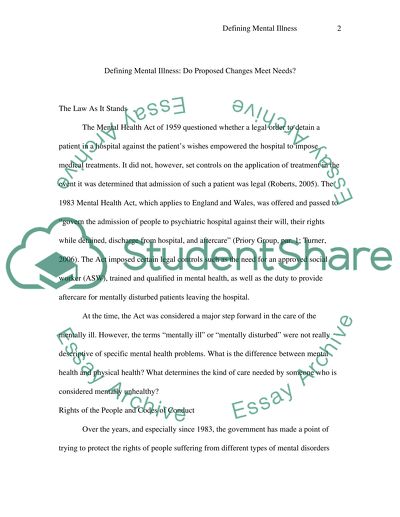Cite this document
(“Mental Health Law Essay Example | Topics and Well Written Essays - 2000 words”, n.d.)
Retrieved from https://studentshare.org/health-sciences-medicine/1534875-mental-health-law
Retrieved from https://studentshare.org/health-sciences-medicine/1534875-mental-health-law
(Mental Health Law Essay Example | Topics and Well Written Essays - 2000 Words)
https://studentshare.org/health-sciences-medicine/1534875-mental-health-law.
https://studentshare.org/health-sciences-medicine/1534875-mental-health-law.
“Mental Health Law Essay Example | Topics and Well Written Essays - 2000 Words”, n.d. https://studentshare.org/health-sciences-medicine/1534875-mental-health-law.


